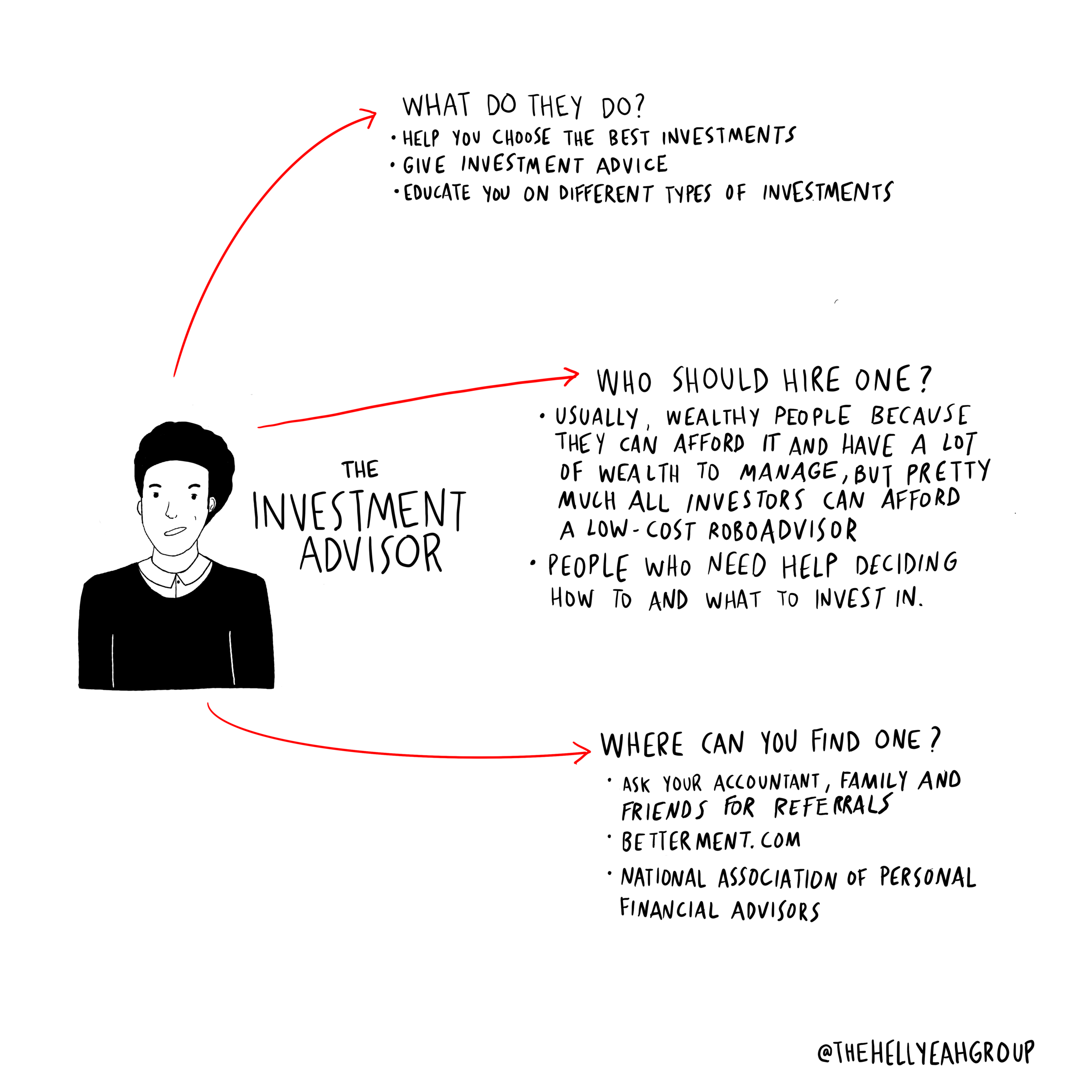My wife is an interior (and event) designer, and when it comes to professionals in those worlds, she has "a guy" for everything. She has a list of general contractors who know how to demolish and build entire rooms. She works with fabricators who create furniture, fabricators who can make window treatments, ironworkers, fine artists, and art consultants. Not to mention painters, electricians, a neon sign guy, and the list goes on. Each vendor has a specialty.
The financial world, just like any other industry, has specialized professionals too. Sometimes it's obvious when you should hire a financial pro. Other times, you might not even know what you don't know. Finances are somewhat intangible, unlike laying down tile in your kitchen, so it might not be evident to you when you should reach out for professional help. So here's a guide to help you understand eight different financial professionals, what they do, and who should hire them.
The Accountant
Accountants are people who can prepare and file your taxes, help you in an audit, and, more importantly, give you advice so you can reduce your chances of facing the cost, time, and stress associated with one.
It's their job to keep up with the ever-changing tax code and help their clients navigate it. Hiring an accountant is essential for small business owners, freelancers, and anyone with multiple revenue streams.
The Bookkeeper
Bookkeepers are usually only hired by small business owners who need help maintaining their business' bookkeeping. For example, a creative agency that represents dozens of artists that do work for dozens of different brands often needs a bookkeeper or team of bookkeepers to help stay on top of all of the accounting. From paying artists to keeping track of project costs and payments, to filing 1099's, a great bookkeeper lets business owners focus on their business.
The Insurance Agent
When I contacted my insurance agent recently to update him with the details of a new car, he told me he did some research only to find out that he found a better rate with a different auto insurance carrier. So we switched carriers and are saving money each month.
One time my wife's company rented a taxidermied swan valued at $10,000. They were planning to suspend the swan in the air. And when it came to figuring out the best insurance, we were able to call our insurance agent to get some guidance.
*Here is the caveat with insurance agents: an agent represents different insurance companies. An insurance broker represents the insurance buyer - you. Since brokers don't work for the insurance companies, their recommendations are unbiased and in favor of the insurance buyer.
The Financial Coach
A financial coach specializes in helping people with their relationship with money and understanding the big financial picture. Coaches are generally a cross between a therapist and a financial planner. They provide accountability, help you address your issues, habits, and beliefs around money, and can help you learn the necessary skills for managing your finances.
The Lawyer
Even though lawyers probably aren't the first type of financial professional that comes to mind, having one can be useful in a variety of situations.
The Financial Planner
A great financial planner will approach your finances holistically. They will be the first person you reach out to if you have any questions about your finances, and if they don't know the answer, they know the professionals who can help you find it.
If you hire one, you'll want to make sure they are a fiduciary. A fiduciary has a legal responsibility to act in your best interest. I know what you're thinking, "Shouldn't all people who work in the industry be subject to this legal standard?" Yes, but unfortunately, not everyone is. You can find out who is just by asking.
The Investment Advisor
Unlike a financial planner who can give you general advice on most things in your financial life, an investment advisor will advise you on your investments.
If you hire an investment advisor, you want to make sure you ask them to explain how they get paid. Usually, it's a fee based on the amount of money you have invested. But it's good to ask them if there are any other fees for buying or selling investments or if the investments themselves also have expenses associated with them.
Once again, you want to make sure you hire a fiduciary.
The Debt Counselor
Debt counselors, also known as credit counselors, help people deal with debt that has become unmanageable. They can help you create a plan, speak to your creditors, and negotiate on your behalf, and give you general advice.
When looking to hire a debt counselor, look for a non-profit debt counseling agency that's accredited by either the National Foundation for Credit Counseling or the Financial Counseling Association of America. For-profit businesses need to make a profit off of their customers, so they tend to charge higher fees than a non-profit.
Do You Need A Financial Professional?
While hiring a professional is a great way to make progress and to make sure you're doing things as effectively as you can to reach your goals, you don't always need one - sometimes you need two!
If you're comfortable making your budget and spending time researching and learning, you can make plenty of progress on your own.
What kinds of financial professionals do you work with?









